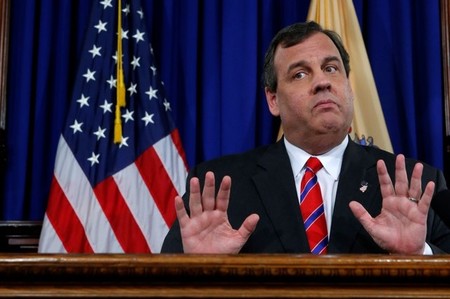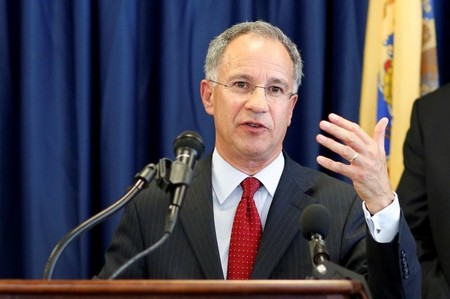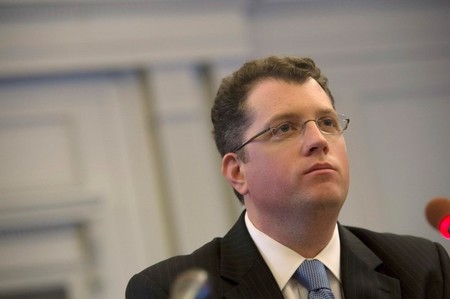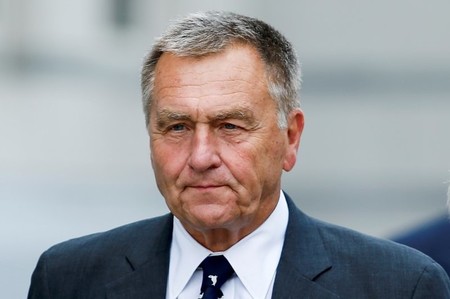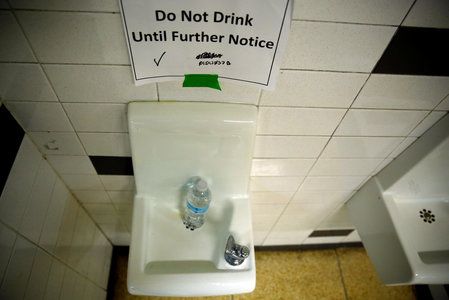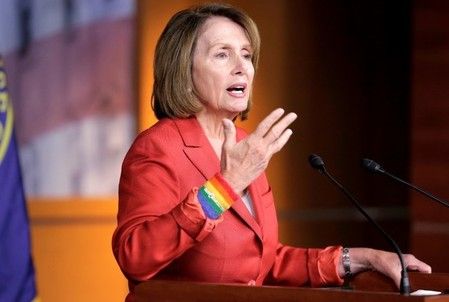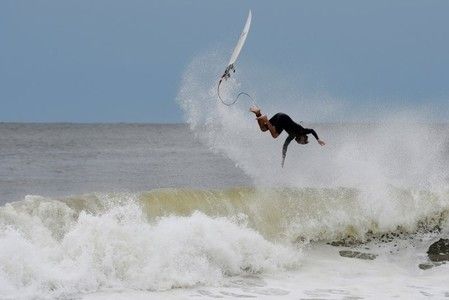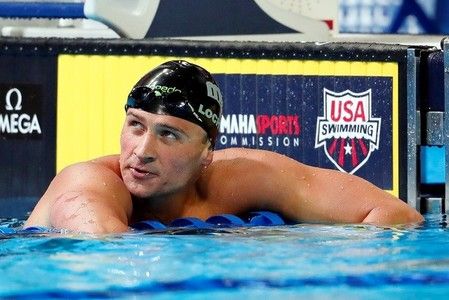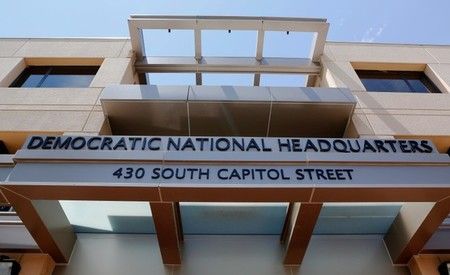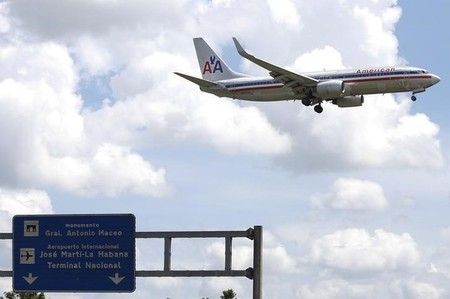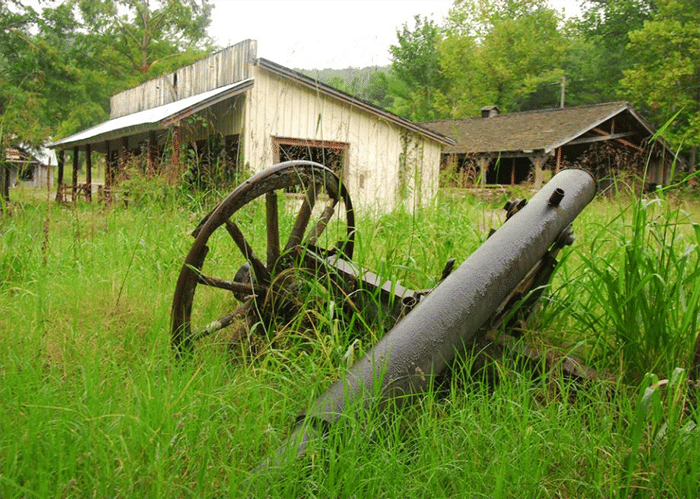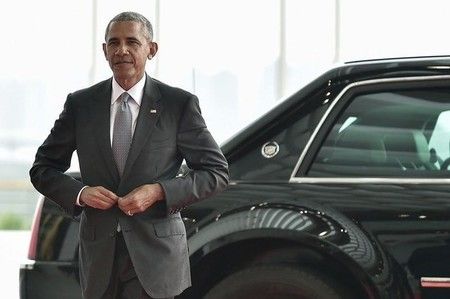Advertisement
As ‘Bridgegate’ trial begins, New Jersey’s Christie remains focus

By Joseph Ax
NEW YORK (Reuters) – New Jersey Governor Chris Christie is not expected to attend the trial this week of two former associates charged in the 2013 “Bridgegate” scandal, but the failed Republican presidential hopeful’s shadow will loom over the proceedings.
Opening statements are scheduled for Monday in federal court in Newark, New Jersey. Bill Baroni and Bridget Anne Kelly are charged with conspiracy and fraud in a nine-count indictment alleging they arranged lane closings that caused gridlock on the heavily traveled George Washington Bridge.
The resulting traffic delayed commuters for hours and left emergency vehicles slow in responding to 911 calls. Prosecutors said the two defendants planned the lane closures to take revenge on a mayor who refused to endorse Christie for re-election.
The governor, at one time a leading Republican presidential hopeful, has not been charged in the scandal that nevertheless helped torpedo his hopes for nomination to the White House in 2016.
In the three years since the scandal broke, Christie has repeatedly denied any knowledge of the plan to disrupt traffic on the world’s busiest road bridge, despite speculation to the contrary.
The trial could finally provide a definitive answer to the question of whether he knew about the alleged plot, and if so, when.
“Bridgegate” took place after Democratic Fort Lee Mayor Mark Sokolich declined to endorse the governor’s reelection campaign in 2013. Christie was seeking support from local mayors to demonstrate bipartisan backing for a Republican governor in a Democratic-leaning state, part of an effort to position himself for a 2016 White House bid.
Prosecutors say the lane closures were ordered in September 2013 by Kelly, Christie’s then deputy chief of staff; Baroni, then deputy executive director of the Port Authority of New York and New Jersey; and David Wildstein, another Christie ally at the Port Authority who has since pleaded guilty.
The GW carries more than 250,000 vehicles a day across the Hudson River between New Jersey and Manhattan.
The trio concocted a cover story, saying the closure was part of a traffic study, prosecutors contend. The shutdown lasted four days, while Baroni and Wildstein ignored increasingly frantic messages from the mayor, according to prosecutors.
The ruse fell apart under scrutiny from journalists and the Democratic-controlled state legislature. In January 2014, emails and text messages were publicly disclosed that showed the officials’ involvement, including an Aug. 13, 2013, email in which Kelly told Wildstein: “Time for some traffic problems in Fort Lee.”
Wildstein, who is expected to be a star government witness, has previously said there is evidence that Christie was aware of the lane closures when they occurred.
Jurors also may hear from Kelly and Baroni, as lawyers for both defendants have said they plan to testify in their own defense.
The defense has suggested it will point the finger at others, including Christie, in arguing that Kelly and Baroni would never have acted on their own.
In a pretrial motion, a lawyer for Baroni revealed that a former Christie aide said in a text message that the governor “flat-out lied” when he said during a 2013 press conference that none of his senior staff were involved in the scandal.
A spokesman for the governor has said the text message does not disprove Christie’s contention that he was unaware of the plot.
Since abandoning his own candidacy for president, Christie has become one of Republican nominee Donald Trump’s most visible supporters.
(Reporting by Joseph Ax; Editing by Scott Malone and David Gregorio)

